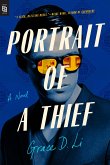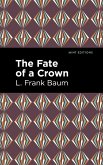When European nations explore clandestine alliances, havoc ensues. The fundamental premise of the story is the formation of a covert alliance between Germany, Russia, and Austria. The English aim to divide Russia by holding the Czar accountable for prior public commitments, but they need proof of the activities committed to pressurise him. All of the reasons that led to WWl are present, but the intrigues and covert agreements serve as a compelling backdrop for the plot's twists and turns. Filled with many deaths and a change of ownership, the novel is a story of financial failure, murder, and robbery in the heart of London.
Hinweis: Dieser Artikel kann nur an eine deutsche Lieferadresse ausgeliefert werden.
Hinweis: Dieser Artikel kann nur an eine deutsche Lieferadresse ausgeliefert werden.








